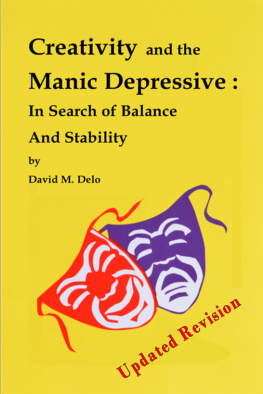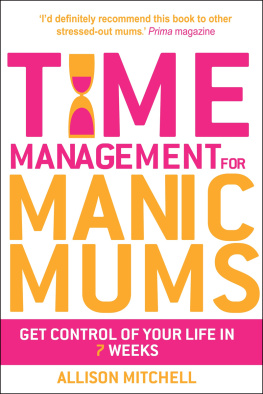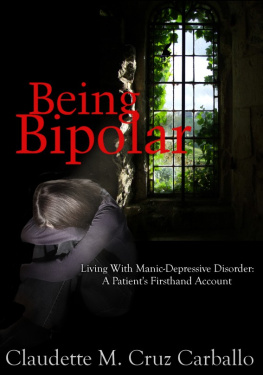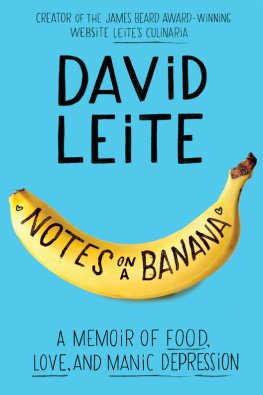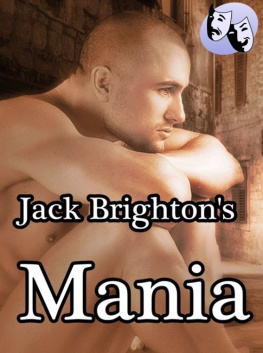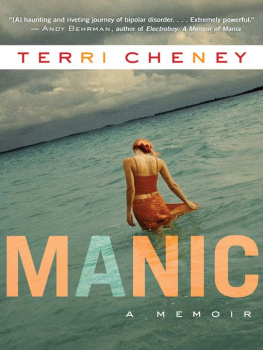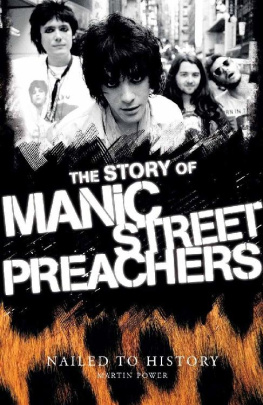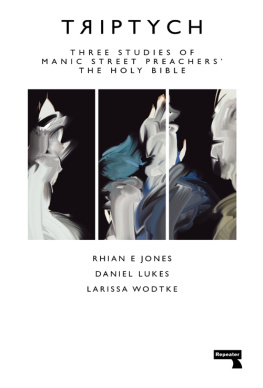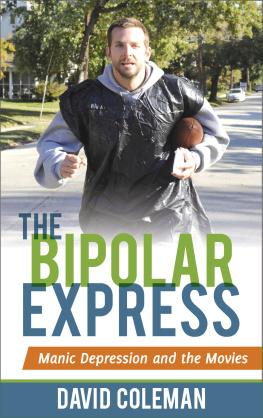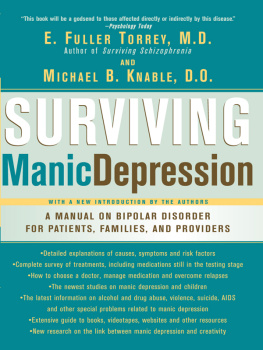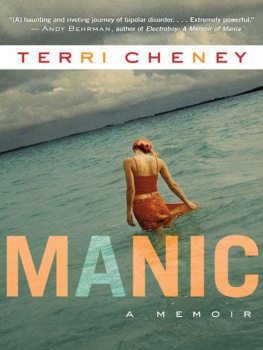Creativity and the ManicDepressive:
In Search of Balance andStability
David M. Delo
Published by David M. Delo atSmashwords
Copyrighted 2018 by David M. Delo
Smashwords License Notice
This eBook is licensed for your personalenjoyment only. I have between 2,000 and 4,000 hours of work inthis book, so please do not sell it or give it away to others. Ifyou want to share
it with another, please purchase an additionalcopy for each recipient
Thank you for respecting the time and creativeeffort of this author.
Table of Contents
INTRODUCTION
This book chronicles the rolemanic depression and creativity have played in my life. In myyouth, I was viewed as a creative maverickbut at least sane. Inever thought bouncing off the walls emotionally and excellingequally in science and art constituted an unusualpackage.
I was fifty-eight yearsold when I was first told for most of my adult life I have beenmanic-depressive (Bipolar II). After sorting through the ashes ofmy erratic life journey, two facts emerged: manic depression hadcharted the course of my life; creativity had become my safe harborand safety net.
I wrote this memoir withthe hope it might help other manic-depressives better understandthe topography of their mental wilderness and open the door tocreativity which might lead them better balance andstability.
Creativity and theManic-Depressive is emotionally toughreading. My past was riddled with faulty logic, flawed choices, andsocially unacceptable behavior. Key life decisions were made in avortex of emotional panic; life-altering actions were initiated ina backlit haze of anxiety, confusion, and pain. I am alivetoday because Iacknowledged and nourished my creative drive.
In my memoir, I am themanic-depressive, the tragedy, and the comedy. I am also theobjective narratorthe person who carried on in normal times. I amnow more in charge of my mind and body than is mydisease. Instead of acting like a thrall to my disease, I useintelligence and awareness to chart the future.
When you finish reading, Ihope you will understand most of my flaws emanate from thebiochemistry of my mind, not my character.
PROLOGUE
Abstract art places a new world, which on thesurface
has nothing to do with reality,next to the real world.
Wasilly Kandinsky, Russianartist.
2004: I know where Iam: Im emerging from depression, slowly making my way back throughdistorted layers of reality. My peripheral vision constitutes theedges of my world. If I focus on the transition I sense randomchanges taking place. Still separated from the normal world by aveil, I float; I feel no need of structure or analysis. I simplysit and face the watercolor paper. Shhh, I tell myself: Center.
I watch the lead of thepencil flow of its own volition, knowing I am not in charge. Nor doI pretend to be. The elbow, arm, hand, and fingers go where theywill without guidance, forethought, or intention. I am in theflow, at a delicate, tension-filled transition from depression tohypo-normality which, according to psychiatrist and author KayRedfield Jamison, is a manic-depressives most creativeperiod.
I wont argue withher, for within the next forty-eight hours I will create fourpaintings I later refer to as Inner ChildSquiggle Characters . Each figure will bebeautiful and unique. I have created nothing like them before. I donot know where they come from or why they are here, so I am a bitreluctant to claim them as my own. My subsequent research into arthistory told me their equivalent cannot be located. I vouch onlyfor their personal appeal.
After I hadcompleted my second sixty-second pencil drawing, I know this willbe College Graduate withAnteater . I erase a few extraneous linesand add what I know will be an eye and a foot with claws. Thatsall it needs: everything else is there, ready to be painted. I usefour harmonic colors because they seem right, and I permit some ofthe lines inside the embracing characters to show through thetransparent glaze. After it dries I paint the background a uniformyellow in watercolor. Then I outline my intertwined characters inpermanent black ink.
In the coming years,I will add seven more to include a tender blue and purple creaturewho cries red. She might have walked out of a Dr. Seuss book as thepersonification of Sadness, which is her name.
I paint, and I writebooks because like every human being, I have to live with my genes.In addition to those which have led me to my disease, others tellme to create. I made this discovery on the cusp of committingsuicide in 1984. Since that time, creative activities have been mylifeline to existence. When I can no longer create, Ill have noneed to be herenor will I want to be. Yes, I am different; myemotional signature does not overlap with the American norm to anymeasurable degree. Never has. I am Bipolar II, amanic-depressive. Sanity , according to Websters Dictionary isthe absence of a mental illness, so technically, I aminsane.
The label doesntbother me; a more accurate label I have invented is Creative manic-depressive, a sub-class ofmanic-depressives. Throughout history its members have been theauthors, poets, playwrights, artists, musicians, sculptors, andsaymanythe geniuses of history. British actor Stephan Fry took partin a televised documentary which allegedly described the secret lives of manic-depressives, stating we are driven by energy to be creative.He then described how mania let the viewer see things in acompletely different way.
I agree: creativityfor Creative Manic-Depressives is the umbilical cord to theirlives. To date, no one knows how it works; it just is . If you aremanic-depressive, but have shied from creative activities, youwould serve yourself well to let go and express yourself. It willprovide you a haven against the manic-depressive's worstenemy inner-generated stress. It will also serve as a refuge from the low buzzof anxiety which most of us have.
Enabling creativityto become your ally and protector can well be a huge step towardsthe manic depressive's elusive goal balance and stability . Creativityhas saved me almost every time I have fallen into deep depression.It makes no difference you write, draw, paint, do photography,carve wood, make quilts, build houses, decorate, or teach. Themajority of Creative manic-depressives are adept in more than onecreative field, for being creative is an approach to life--not askill with technical boundaries.
I may be a typicalCreative manic-depressive. I mastered the tenets of AnselAdams-style photography and printed high quality photographs from35 mm to 8x10 inch negatives. I have researched and written a dozenpublished articles and seven books (fiction and nonfiction) Ivesold hundreds of dozens of my pen and ink note cards, and more thantwenty thousand dollars' worth of my watercolor and oil paintings.Periodically, I have taught creative writing, photography, pen andink, and watercolors. And long, long ago, I won an all-StatenIsland prize for poetry with the first poem I had ever written. Ihave designed passive solar homes, done lapidary, made jewelry,carved wood, and so on.
The point is not that I am somemarvelous Renaissance man or polymath, but the bond betweencreativity and manic depression is an established fact as well aslegend. I have found at least six books which explored thisrelationship and summarized most of the available information onthis topic in the last chapter of this book.
Like it or not, creativityand manic depression are partners in a symbiotic relationship. Youwill read I spent forty years of my life in the attempt to discoverwho am. It was a horrible, wasteful, gut-wrenching epoch when I wasled like a bull with a ring in my nose by my manic depression. Yetevery time I decided to end my life, my creativity saved me fromtaking the final step. I found that revelation powerful andfascinating.
Next page
